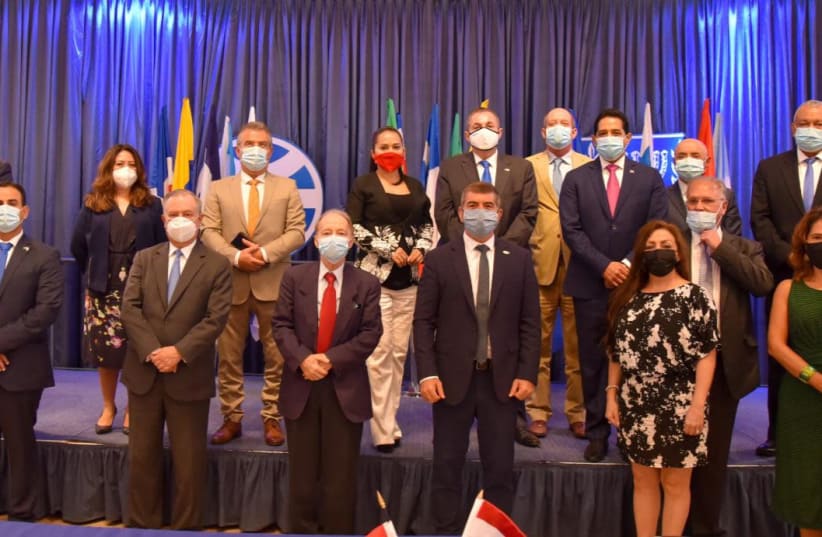Foreign Minister Gabi Ashkenazi called on Latin American countries to ban Hezbollah, in a meeting with ambassadors from the region on Wednesday.
“Terrorism affects all countries and we have to fight it in a mutual way,” Ashkenazi said. “The best way to do that is sanctions on Hezbollah.”
The Foreign Minister pointed out to the Latin American ambassadors: “Some of your countries already suffered from this organization. There’s a place to change that and outlaw Hezbollah. We will appreciate it if we see progress with Latin American countries regarding this issue.”
Ashkenazi has emphasized bans on Hezbollah in conversations with his counterparts in all countries that still allow the organization to be active, but Latin America is particularly significant because the terrorist group is especially active in the region.
Hezbollah has a major presence on the border of Brazil, Argentina and Paraguay, and in Venezuela, which does not have official diplomatic relations with Israel, though acting president Juan Guaido seeks to remove Hezbollah from the country and establish ties with Israel.
The Lebanese terrorist organization bombed the AMIA Jewish community center in Buenos Aires in 1994, killing 85.
Colombia, Honduras and Guatemala have all banned Hezbollah.
Ashkenazi also addressed the massive explosion in Beirut the day before, reiterating Israel’s offer of aid.
“We make a distinction between Hezbollah and the Lebanese people, and that’s why the government of Israel and Department of Defense offered the Lebanese people any humanitarian aid they need, through international channels, either in Israel or Lebanon, whatever they want,” he said.
Ashkenazi said the offer was “a commitment, as neighbors.”
He added that it is “not clear what happened. We are following events as they evolve. It looks like an accident.”
The foreign minister also mentioned US President Donald Trump’s peace plan, calling it “a framework to solve the conflict.”
“Unfortunately, the Palestinians are refusing to have a dialogue,” he said. “I don’t understand how their refusal serves their interests.”
Ashkenazi asked anyone with “leverage over the Palestinians” to try to persuade them to come to the negotiating table.
As for Israel-Latin America ties, Ashkenazi spoke of the historic support many of those states provided in voting in the UN in favor of Israel’s establishment and accepting Jewish refugees after the Holocaust.
“We will never forget that you had a major part in the establishment of this country and provided support in a difficult time for the Jewish people,” he said.
Ashkenazi expressed hope Israel could sign more free trade agreements with countries in Latin America, and offered Israeli expertise in agriculture, water use and cybersecurity.
“The potential to enhance the relationship is really great,” he said.
